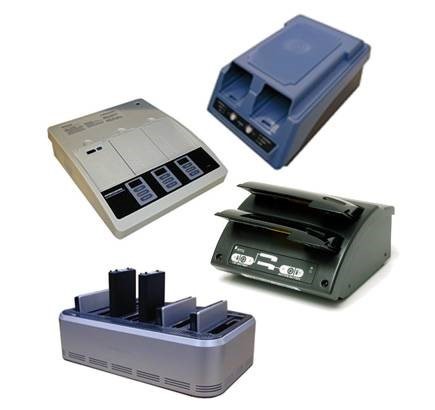The pulse charging technology is revolutionizing the way we charge non-rechargeable batteries with adapters for battery chargers. In the realm of battery technology, where performance and lifespan are critical factors, understanding the benefits of pulse charging is essential.
Understanding Pulse Charging Technology
Pulse charging technology, also known as trickle charging or maintenance charging, involves delivering short pulses of charging current to the battery at regular intervals. Unlike continuous charging, which applies a steady current throughout the charging process, pulse charging alternates between charging and resting phases.
Enhanced Performance
One of the primary advantages of pulse charging technology is its ability to enhance the performance of non-rechargeable batteries. By delivering short bursts of energy, pulse chargers can break down crystalline formations that may form on the battery's electrodes over time, a process known as sulfation. This helps prevent the buildup of sulfation, which can lead to reduced battery capacity and performance degradation.
Extended Lifespan
In addition to improving performance, pulse charging technology also extends the lifespan of non-rechargeable batteries. By minimizing the impact of sulfation and other forms of degradation, pulse chargers help maintain the battery's capacity and efficiency over time. This can result in longer-lasting batteries that provide reliable power for a wide range of applications.
Optimized Charging Process
Another benefit of pulse charging technology is its ability to optimize the charging process for non-rechargeable batteries. Unlike traditional chargers that apply a constant voltage or current, pulse chargers adjust the charging parameters based on the battery's condition and charging history. This ensures that the battery receives the optimal level of charging without overcharging or undercharging, maximizing efficiency and safety.
Applications in Various Industries
The versatility of pulse charging technology makes it suitable for a wide range of industries and applications. From consumer electronics and medical devices to industrial equipment and automotive systems, adapters for battery chargers equipped with pulse charging technology are indispensable tools for powering critical devices reliably and efficiently.
Energy Efficiency
Additionally, pulse charging technology enhances the energy efficiency of non-rechargeable battery chargers. By delivering precise pulses of energy, these chargers minimize wasted energy and heat generation during the charging process, resulting in more efficient charging and reduced energy consumption. This not only saves power but also helps reduce operating costs and environmental impact, making pulse chargers a sustainable choice for powering devices with non-rechargeable batteries.
Wrapping Up
Pulse charging technology enhances the performance and lifespan of non-rechargeable battery chargers by breaking down sulfation, extending battery lifespan, and optimizing the charging process. As technology continues to advance, pulse chargers will play an increasingly important role in powering the devices that shape our daily lives.

